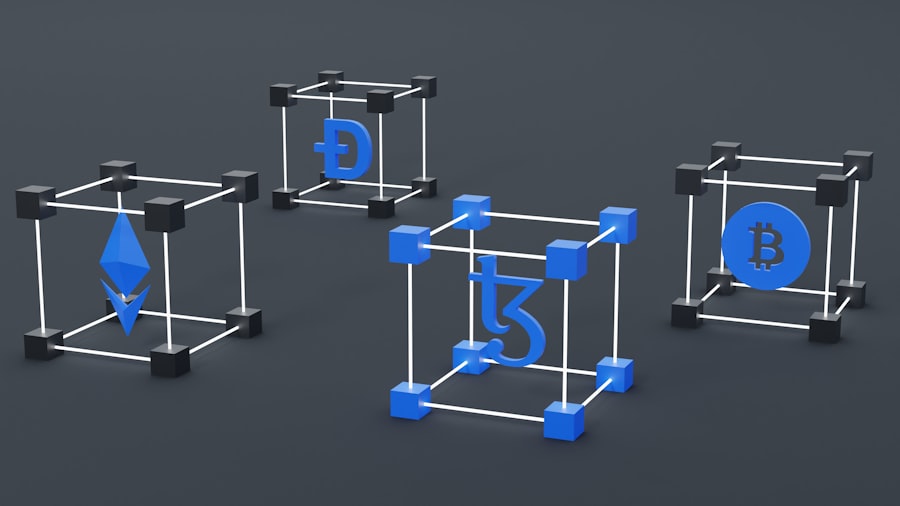In today’s fast-paced business environment, the ability to make informed decisions based on data is paramount. However, the sheer volume of data available can be overwhelming, and this is where networking plays a crucial role. By connecting with others in your field, you can gain insights that are not readily available through traditional data sources.
Networking allows you to tap into a wealth of knowledge and experience, enabling you to make more informed decisions that can drive your organization forward. When you engage with peers, industry leaders, and data experts, you create a support system that can help you navigate the complexities of data-driven decision-making. Moreover, networking fosters an environment of collaboration and innovation.
When you share ideas and experiences with others, you open the door to new perspectives that can enhance your understanding of data analytics. This collaborative spirit can lead to the development of new strategies and methodologies that improve your decision-making processes. By building a network of like-minded professionals, you not only enhance your own skills but also contribute to the collective intelligence of your industry.
In essence, networking is not just about exchanging business cards; it’s about creating a community that thrives on shared knowledge and mutual support.
Key Takeaways
- Networking is crucial for data-driven decision making as it provides access to valuable data sources and expertise.
- Leveraging networking can help in accessing diverse data sources and building relationships for data sharing and collaboration.
- Building strong relationships through networking is essential for data sharing and collaborating with external partners for data enrichment.
- Networking provides access to expertise and knowledge, which is essential for data validation and verification.
- Staying updated on industry trends and insights through networking is crucial for making informed data-driven decisions.
Leveraging Networking to Access Data Sources
Accessing high-quality data is essential for effective decision-making, and networking can significantly enhance your ability to find these valuable resources. By connecting with industry peers and experts, you can discover new data sources that may not be widely known or utilized. These connections can lead you to databases, research studies, and proprietary information that can provide a competitive edge for your organization.
Networking allows you to tap into the experiences of others who have successfully navigated similar challenges, giving you access to data sources that can inform your strategies. Additionally, networking can facilitate partnerships with organizations that specialize in data collection and analysis. By collaborating with these entities, you can gain access to their datasets and insights, which can be instrumental in shaping your decision-making processes.
Whether it’s through formal partnerships or informal connections, leveraging your network to access diverse data sources can enrich your understanding of market trends and consumer behavior.
This not only enhances your decision-making capabilities but also positions you as a knowledgeable player in your industry.
Building Relationships for Data Sharing and Collaboration

Building strong relationships within your professional network is essential for fostering an environment conducive to data sharing and collaboration. When you establish trust with your peers, they are more likely to share valuable insights and data that can benefit your organization. This reciprocal relationship is vital; as you share your own knowledge and resources, you create a culture of collaboration that encourages others to do the same.
By nurturing these relationships, you can create a robust network of professionals who are willing to collaborate on data-driven projects. Furthermore, collaborative efforts often lead to innovative solutions that may not have been possible in isolation. When individuals from different backgrounds come together to share their expertise and data, they can uncover new patterns and insights that drive better decision-making.
This collaborative approach not only enhances the quality of the data being shared but also fosters a sense of community among professionals in your field. By prioritizing relationship-building within your network, you position yourself as a key player in a collaborative ecosystem that thrives on shared knowledge and resources.
Networking for Access to Expertise and Knowledge
In the realm of data-driven decision-making, having access to expertise is invaluable. Networking provides you with opportunities to connect with thought leaders and industry experts who possess specialized knowledge that can inform your strategies. By engaging with these individuals, you can gain insights into best practices, emerging trends, and innovative methodologies that can enhance your decision-making processes.
This access to expertise not only enriches your understanding but also empowers you to make more informed choices. Moreover, networking allows you to participate in discussions and forums where knowledge is exchanged freely. These interactions can lead to mentorship opportunities, where experienced professionals guide you through complex challenges in data analysis and interpretation.
By leveraging these relationships, you can accelerate your learning curve and develop a deeper understanding of the nuances involved in data-driven decision-making. Ultimately, networking serves as a gateway to a wealth of expertise that can significantly impact your organization’s success.
Utilizing Networking to Stay Updated on Industry Trends and Insights
The landscape of data analytics is constantly evolving, making it essential for professionals to stay updated on the latest trends and insights. Networking provides a platform for you to engage with others who are at the forefront of industry developments. By participating in conferences, workshops, and online forums, you can gain exposure to cutting-edge research and emerging technologies that are shaping the future of data-driven decision-making.
This continuous learning process is vital for maintaining a competitive edge in your field. Additionally, networking allows you to share experiences with peers who are facing similar challenges. By discussing industry trends and insights with others, you can gain a broader perspective on how these developments may impact your organization.
This collaborative approach not only enhances your understanding but also fosters a sense of community among professionals who are committed to staying informed. By actively engaging in networking opportunities, you position yourself as a proactive learner who is dedicated to leveraging industry insights for better decision-making.
Harnessing Networking for Data Validation and Verification

In an age where misinformation can spread rapidly, ensuring the accuracy of your data is crucial for effective decision-making. Networking provides an avenue for validating and verifying the information you collect. By connecting with trusted professionals in your field, you can cross-reference data points and gain confidence in the accuracy of your findings.
This collaborative approach helps mitigate the risks associated with relying on potentially flawed data sources. Furthermore, networking allows you to engage in discussions about best practices for data validation and verification. By sharing experiences with others who have faced similar challenges, you can learn about effective methodologies for ensuring data integrity.
This exchange of knowledge not only enhances your own practices but also contributes to the overall quality of data within your network. By prioritizing data validation through networking, you position yourself as a responsible steward of information who values accuracy in decision-making.
Collaborating with External Partners for Data Enrichment
Collaboration extends beyond internal teams; it also encompasses partnerships with external organizations that can enrich your data landscape. Networking enables you to identify potential collaborators who possess complementary expertise or datasets that can enhance your analysis. By working together with these external partners, you can create a more comprehensive view of the market or consumer behavior, leading to more informed decision-making.
Moreover, collaborating with external partners often opens doors to new methodologies and technologies that can improve your data analysis processes. These partnerships can lead to innovative solutions that may not have been possible within the confines of your organization alone. By leveraging networking opportunities to forge these collaborations, you position yourself at the forefront of data-driven innovation, ultimately driving better outcomes for your organization.
Networking for Data-Driven Decision Making Success Stories
The power of networking in data-driven decision-making is exemplified by numerous success stories across various industries. Professionals who have actively engaged in networking have often found themselves at the helm of transformative projects that have significantly impacted their organizations. For instance, consider a marketing manager who leveraged their network to access consumer behavior data from industry peers.
By analyzing this enriched dataset alongside their own findings, they were able to develop a targeted marketing campaign that resulted in a substantial increase in customer engagement. Another compelling example involves a healthcare professional who connected with researchers through networking events. By collaborating on a study that analyzed patient outcomes using shared datasets, they were able to identify key factors influencing treatment efficacy.
This collaboration not only enhanced their understanding of patient care but also led to improved protocols within their organization based on evidence-driven insights. These success stories highlight the tangible benefits of networking in the realm of data-driven decision-making. By fostering relationships and collaborating with others in your field, you position yourself for success in an increasingly complex landscape where informed decisions are paramount.
Ultimately, networking serves as a catalyst for innovation and growth, empowering professionals like yourself to harness the full potential of data in driving organizational success.
For those interested in understanding how networking can significantly influence data-driven decision-making, a related article worth exploring is “How Networking Groups Enhance Business Development Skills.” This piece delves into the ways in which professional networking groups can bolster business development, a key component in making informed, data-driven decisions. By enhancing skills through group engagement and shared expertise, professionals can leverage their networks to access valuable data and insights, which are crucial for strategic decision-making. You can read more about this topic by visiting How Networking Groups Enhance Business Development Skills.
FAQs
What is data-driven decision making?
Data-driven decision making is the process of making decisions based on data analysis and interpretation, rather than relying solely on intuition or personal experience.
How does networking enable data-driven decision making?
Networking enables data-driven decision making by allowing different systems and devices to communicate and share data with each other. This connectivity enables the collection, storage, and analysis of large amounts of data, which can then be used to inform decision making.
What are some examples of networking technologies that enable data-driven decision making?
Examples of networking technologies that enable data-driven decision making include cloud computing, Internet of Things (IoT) devices, and data analytics platforms. These technologies allow for the seamless collection, storage, and analysis of data from various sources.
What are the benefits of using networking for data-driven decision making?
Using networking for data-driven decision making allows for real-time data collection and analysis, improved accuracy and reliability of data, and the ability to access and share data across different locations and devices. This can lead to more informed and effective decision making.
What are some challenges or considerations when using networking for data-driven decision making?
Challenges and considerations when using networking for data-driven decision making include data security and privacy concerns, the need for robust network infrastructure and bandwidth, and the potential for data silos or interoperability issues between different systems and devices.





